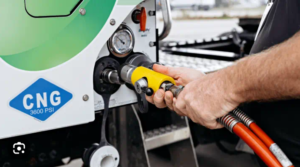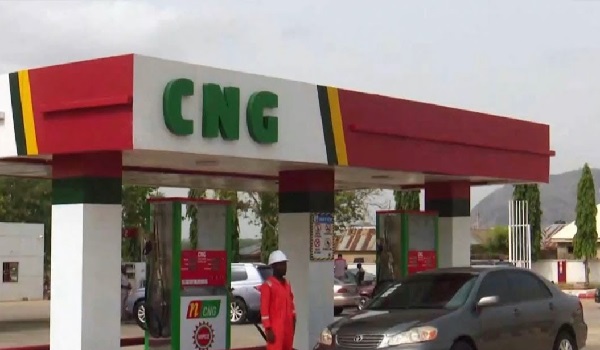Conversion centres across Nigeria have begun receiving Compressed Natural Gas (CNG) kits as part of the Federal Government’s initiative to mitigate transportation costs and lower carbon emissions.
The initiative, overseen by the Presidential Compressed Natural Gas Initiative, aims to provide a cost-effective and environmentally friendly fuel alternative for commercial vehicles.
On Saturday, Michael Oluwagbemi, Programme Director of the Presidential CNG Initiative, announced that 18 conversion centres nationwide had each received 50 CNG kits.]
During an inspection of the centres in Abuja, Oluwagbemi stated, “Today marks the launch of our CNG kit distribution, offering commercial drivers a chance to participate in the conversion incentive programme introduced by the President.”
In August, the President pledged to distribute one million free conversion kits to the commercial sector to help stabilize transportation fares. Oluwagbemi noted that seven centres in Abuja have already benefited from the initiative, with plans to extend the program further.
“We have partnered with over 75 conversion centres across eight states: Lagos, Ogun, Oyo, Delta, Kogi, Nasarawa, FCT, and Kaduna. We will soon include nine additional states, including Kwara and Akwa Ibom,” Oluwagbemi revealed.
The free CNG kits are available to commercial vehicle owners who need only present their vehicle documents or identification for verification. This program is expected to convert one million vehicles to CNG, potentially saving N750 million—equivalent to one month’s fuel subsidy payment—and create 100,000 direct jobs.
John Ojonugwa, a commercial taxi driver at the Abg CNG centre in Abuja, expressed his hope for the program. “I’ve been waiting since 6 a.m. for my vehicle’s conversion. I’m optimistic that this free initiative will help reduce my operational costs.”
Technician Mas’ud Ya’u at Abg CNG Dawaki mentioned, “It takes one day to convert a vehicle to CNG. We used to convert about four cars a day, and with the new initiative, we expect to handle more.”
Oluwagbemi highlighted the economic and environmental benefits of the program. “Our objective is to reduce Nigeria’s dependency on petrol and diesel, which has severely strained our economy.

For the past 15 years, we’ve borrowed $8-10 billion annually to subsidize these fuels, while $12.5 billion worth of gas has been flared in the last five years. This shift to CNG is a step towards a cleaner, cheaper, and more sustainable energy future.”
The President’s vision also includes establishing 2,300 CNG refilling stations and additional energy plants to support the increased demand.
“This initiative will benefit all Nigerians by providing a more affordable fuel option, creating jobs, advancing technology, and eliminating the financial burden of subsidies,” Oluwagbemi added.




